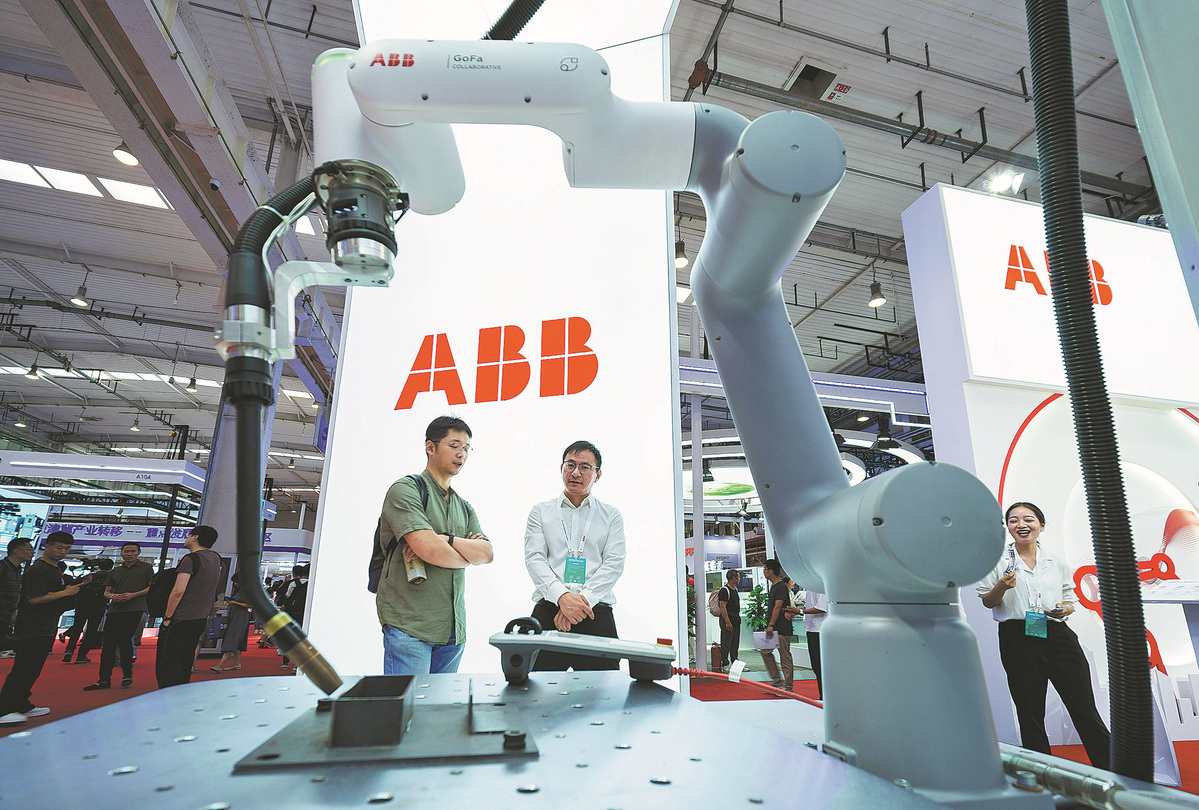Cooperation trumps competition for win-win
Foreign, domestic companies find new ways to shine together as market dynamics change


Zhu Bing, director of the department at the Commerce Ministry's foreign investment administration, said it is normal for the scale of foreign investment to fluctuate. There are various reasons for this, including both economic and non-economic factors.
The commerce official listed several factors, including the impact of the COVID-19 pandemic, that might have caused a lag in investment data, bearing in mind the long cycle of investors' investment decisions, geopolitics and the overall shrinkage in the scale of FDI globally, which fell to $1.3 trillion in 2022, down about 12 percent from 2021, according to data from the United Nations Conference on Trade and Development.
"We welcome multinational companies and small and medium-sized enterprises from overseas to invest in China," Zhu said, adding the cooperation between these businesses and domestic ones is an important new way for foreign investment to enter the Chinese market.
Emphasizing China's economic strengths and its crucial role in global industrial and supply chains, Zhang Wei, vice-president of the Beijing-based Chinese Academy of International Trade and Economic Cooperation, said that as China continues to progress with its high-level opening-up policies, there are increasing business prospects for foreign companies, particularly in the realms of high-end manufacturing, digital transformation and decarbonization.
The National Bureau of Statistics announced in mid-January that China's GDP grew 5.2 percent year-on-year to a new high of 126.06 trillion yuan in 2023. The country's growth not only outpaces the estimated global growth of 3 percent, but also ranks top among major economies.
"Looking at the numbers, if you look at the size of the Chinese economy, the 'next China' will be China. That is still the largest market in the Asia-Pacific region and even with growth of around 5 percent, the growth of China will be bigger than the whole markets of India and Indonesia combined," said Morten Wierod, president of the electrification business area and a member of the group executive committee of ABB Ltd, a Switzerland-based technology company.
Wierod said that ABB will spend more than $100 million on research and development of its electrification business in China over the next three years. The group also leverages China as a hub for exporting its products to various regions, including Asia, the Middle East, Latin America and a number of European markets.
"China is at the forefront of digital innovation and application; which is why, I find it consistently intriguing to visit and witness the rapid changes since my last visit," he said. "I made three trips to China last year (2023), and I anticipate making at least as many this year because the pace of development in China is so rapid that staying away for too long would mean missing out on significant advancements."
Similar views were expressed by Chen Xudong, chairman of IBM China. "As China continues to accelerate industrial upgrading and promote high-standard opening-up, I believe the country has ample policy space to counter economic downturn pressures and explore new growth opportunities in sectors like new energy, artificial intelligence and low-carbon industries."
























